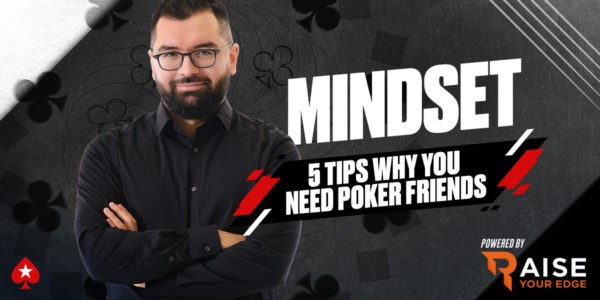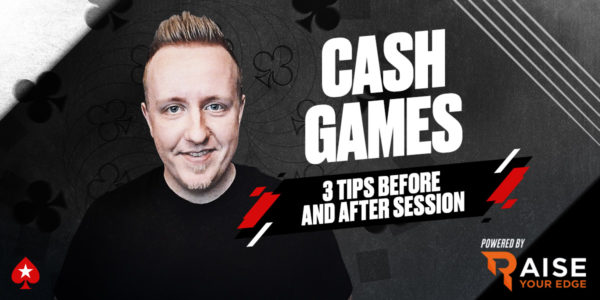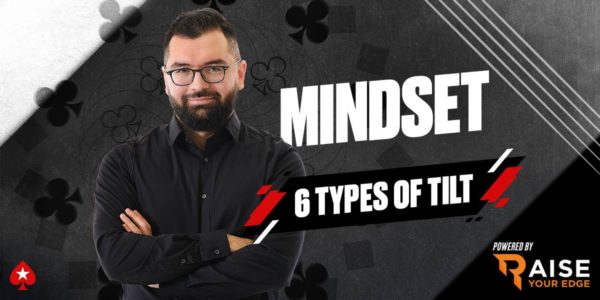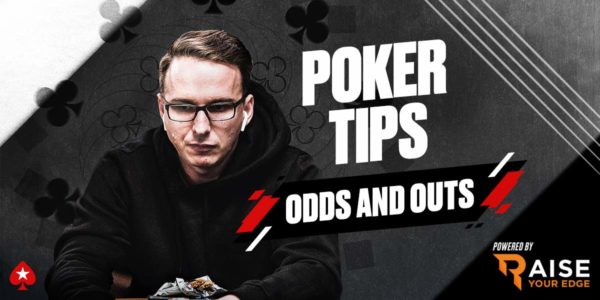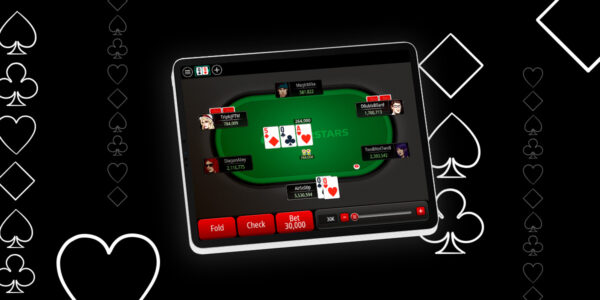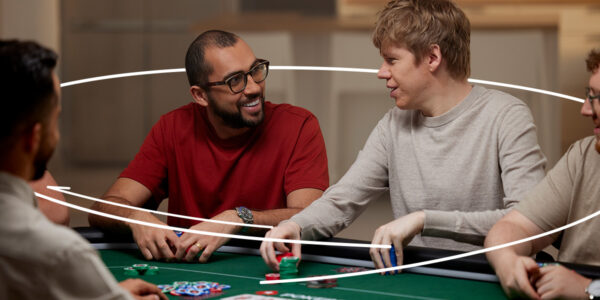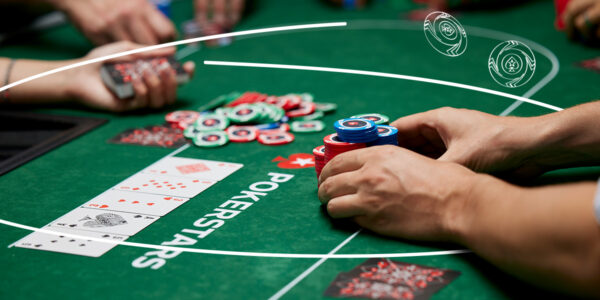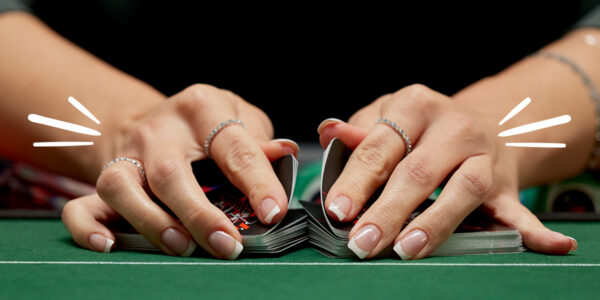Do Not Probe Turn with the Middle of Your Range
Probing turn means betting out of position after the pre-flop raiser has checked behind on the flop. A big mistake that newer players make in this situation is betting the middle of their range. Such a bet makes little sense because, in these situations, almost all better hands are calling and almost all worse hands, folding. Let’s illustrate.
Mistake 1 – Probing Stable Showdown Value
We shall say a hand has showdown value if it can often win at showdown but is not good enough to put much money into the pot while value betting.
In a cash game, Big Blind wakes up with T♠️9♠️ and decides to flat CO’s 2.5BB open after BU and SB have both folded. The flop comes K♦️Q♥️T♣️ and BB checks. CO checks behind. The turn is the and BB bets half of the pot. This is a big error, yet many micro-stakes players make this bet without batting an eyelid. Normally, their reasoning is something like: ‘I think I might have the best hand now.’ But thinking you might have the best hand is not a reason to bet. There are only three reasons to bet.
- Value – Building the pot because you think you will be a favourite when your bet gets called
- Bluffing – Making a bet to which you think Villain will fold enough better hands than yours for the price you are laying yourself.
- Protection – Making a bet with a hand that is often best to cause Villain to fold worse hands with significant equity against your hand.
When none of these reasons apply, there is no reason to put money into the pot and your bet is likely to be lower EV than checking would be. When BB bets on the turn (probes turn) in this hand, he is not value betting as he is clearly an under dog if his bet gets called by CO. He is also not bluffing because no hand better than third pair is likely to fold. Nor is BB protection betting here. Firstly, he does not have the best hand often enough to bet solely for this reason. CO has no reason to check an overly weak range here, and while his range is capped, it is likely to contain many better one-pair hands. Secondly, the pair off tens is not vulnerable. Even if BB makes CO fold here, the hands that get folded will be very dead against T9. Making your opponent fold two or three outs is not worth it when you could bluff catch against hands like 55 or A2s by checking.
BB’s bet is not just aimless, it is also costly. There are many times when this hand would just check down to showdown and BB would lose a smaller pot vs. a Queen or a stronger Ten. Moreover, by betting, BB virtually guarantees that he will win no money whatsoever by bluff-catching. How is CO supposed to bluff with 87s now?
In summary, BB’s bet is horrible, He is committing one of the most fundamental errors possible in poker. If you are making bets like this, you need to go right back to the beginning and ask yourself why.
Mistake 2 – Probing the Absolute Middle
Again, our Hero is in the big blind and again his play will serve as a great example of what not to do. A strong player opens the CO and our anti-role-model makes the call – this time with A♣️7♣️.
The flop comes 8♦️3♠️3♥️ and it goes check – check. CO is incentivised to check behind on some of these flops where BB can make a bunch of trips that he cannot have. However, just as in the last hand, when CO checks he is checking a range that has an EV advantage over BB’s wide range.
When a good player starts with a range advantage, he does not check the flop with an unprotected range.
This means that CO will be defending more than often enough to make reckless turn probing not such a good idea for the BB. Alas, the BB is not a seasoned player and he predictably succumbs to the pitfall of betting BECAUSE VILLAIN CHCKED or BECAUSE VILLIAN SHOWED WEAKNESS. As we saw in hand 1, neither of these claims constitute a reason for betting and they are very misguided here. CO did cap his range by checking. He is very unlikely to have a full house now, but he is also unlikely to have barrel loads of air which will frequently c-bet the flop. CO’s range is condensed here, meaning that he has a lot of strong showdown value hands to bluff-catch with. BB bets half of the pot and CO calls. He can do this with any better Ace and some pairs. He does not need a strong hand to beat a random hand. The river is a blank and it goes check-check. CO wins with A♦️J♦️ – a nicely played hand by him.
What did BB do wrong exactly? He bet for no purpose. He made a bet with the absolute middle of his range which could only be called by better hands and couldn’t get any better hands to fold. Sometimes CO will fold with some garbage hand and BB will reap a little bit of protection, but because CO’s range is protected, BB ends up usually getting called and losing far for money by betting than he would by checking. Protection only gains you a little bit of the pot, whereas running into the AJ cost him a full bet.
Let BB’s wayward play in these two spots be your baseline for how not to play poker. Do not probe turn with the middle of your range, unless you have a rare exploitative reason. It is a theoretical blunder and a big mistake vs. most opponents.
Condimentum Nibh
Donec sed odio dui. Cras mattis consectetur purus sit amet fermentum. Vestibulum id ligula porta felis euismod semper. Curabitur blandit tempus porttitor.


